New in Ceasefire
New in Ceasefire, Special Reports - Wednesday, January 20, 2016 14:03 - 1 Comment
Special Report">Bazaar Politics: Uncovering Social Cleansing In the Heart of London Special Report
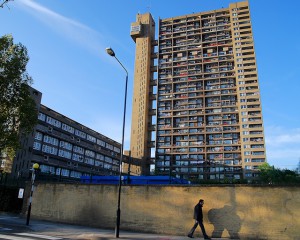
Dilly Hussain reports on the shocking story of how powerful commercial property developers and local politicians at an inner London borough have colluded to force out the working poor out of the area.
New in Ceasefire, Notes from the Margins - Sunday, January 10, 2016 19:31 - 4 Comments
Notes from the Margin">Corbyn, Stop the War and the British Press: My Week as a Media Pariah Notes from the Margin
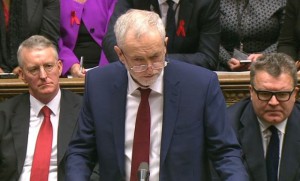 When Matt Carr published an article criticising the British drive to war in Syria, little did he expect to see it become the focal point of an intense media assault on the Labour Party leader, Jeremy Corbyn. The episode, Carr writes, speaks volumes about the intellectual and moral ills of the British media.
When Matt Carr published an article criticising the British drive to war in Syria, little did he expect to see it become the focal point of an intense media assault on the Labour Party leader, Jeremy Corbyn. The episode, Carr writes, speaks volumes about the intellectual and moral ills of the British media.
Ideas, New in Ceasefire - Monday, November 30, 2015 10:55 - 8 Comments
Comment">Environment of Hate: The New Normal for Muslims in the UK Comment
 In the wake of the publication of a landmark report documenting a rise in anti-Muslim racism in the UK, one of its authors, Arzu Merali, argues for a deeper understanding of the systemic roots of Islamophobia.
In the wake of the publication of a landmark report documenting a rise in anti-Muslim racism in the UK, one of its authors, Arzu Merali, argues for a deeper understanding of the systemic roots of Islamophobia.
New in Ceasefire, Reflections - Wednesday, November 25, 2015 13:45 - 0 Comments
Reflections">From Aylan to Paris: Our Changing Narratives of Refugees Reflections
 In his latest column, Roger Bromley examines the evolution of Western responses, by governments, the media and the public, to the refugee question in the wake of pivotal turning points such as the drowning of Aylan Kurdi and the Paris attacks.
In his latest column, Roger Bromley examines the evolution of Western responses, by governments, the media and the public, to the refugee question in the wake of pivotal turning points such as the drowning of Aylan Kurdi and the Paris attacks.
New in Ceasefire, Politics - Tuesday, November 10, 2015 23:53 - 1 Comment
Comment">High-Tech Fundamentalist: Narendra Modi’s UK Visit is a Shameful Victory of Business over Human Rights Comment
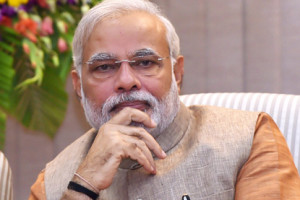 The UK visit this week by Narendra Modi, the Prime Minister of India, has met with outrage and condemnation among human rights groups. While Modi promotes India as an industrial Hi-Tech hub abroad, he has allowed mob rule and impunity to reign at home, argues Aisha Maniar.
The UK visit this week by Narendra Modi, the Prime Minister of India, has met with outrage and condemnation among human rights groups. While Modi promotes India as an industrial Hi-Tech hub abroad, he has allowed mob rule and impunity to reign at home, argues Aisha Maniar.
In Theory, New in Ceasefire - Friday, October 9, 2015 14:47 - 2 Comments
An A to Z of Theory">Thomas Aquinas: The State and the Common Good An A to Z of Theory
 In the last essay of his three-part series on the medieval philosopher, Andrew Robinson examines the political thought of Thomas Aquinas, notably his ideas on the state, the limits of state power, and the uses and abuses of the idea of the common good.
In the last essay of his three-part series on the medieval philosopher, Andrew Robinson examines the political thought of Thomas Aquinas, notably his ideas on the state, the limits of state power, and the uses and abuses of the idea of the common good.
Editor's Desk, New in Ceasefire - Thursday, October 8, 2015 17:00 - 1 Comment
Comment">“Dead Women Can’t Vote”: Why We Stormed the Red Carpet at the Suffragette Premiere Comment
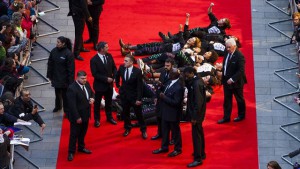 Yesterday, the London premiere of the film 'Sufragette' was disrupted by a red carpet direct action led by protesters from activist collective Sisters Uncut. They explain why their action was both appropriate and necessary.
Yesterday, the London premiere of the film 'Sufragette' was disrupted by a red carpet direct action led by protesters from activist collective Sisters Uncut. They explain why their action was both appropriate and necessary.
Ideas, New in Ceasefire - Thursday, October 1, 2015 14:06 - 1 Comment
Comment">David Cameron’s Jamaican Prison: A Show of Ignorance, Cruelty and Historical Amnesia Comment
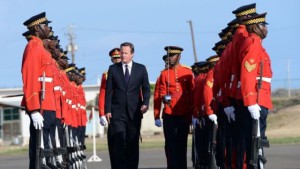 On his visit to Jamaica this week, instead of addressing widening calls for historical reparations, David Cameron announced plans for a UK-funded prison on the island to transfer Jamaican offenders from the UK. Luke de Noronha examines the wider context.
On his visit to Jamaica this week, instead of addressing widening calls for historical reparations, David Cameron announced plans for a UK-funded prison on the island to transfer Jamaican offenders from the UK. Luke de Noronha examines the wider context.
New in Ceasefire - Friday, September 25, 2015 22:44 - 0 Comments
Politics">Jeremy Corbyn’s victory might only be a first step, but it’s an important one Politics
 This summer's Labour Leadership race, which culminated in Jeremy Corbyn's election two weeks ago, offers valuable lessons on the power of mass movements, argues Frank Barat.
This summer's Labour Leadership race, which culminated in Jeremy Corbyn's election two weeks ago, offers valuable lessons on the power of mass movements, argues Frank Barat.
Interviews, New in Ceasefire - Wednesday, September 23, 2015 14:27 - 1 Comment
Politics">Interview | Director Kirby Dick: “Sexual assault on college campuses is an epidemic” Politics
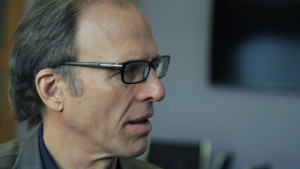 Ceasefire's Usayd Younis and Cassie Quarless spoke to Director Kirby Dick at the UK premiere of his latest release ,'The Hunting Ground,' which addresses the growing pandemic of sexual assaults across US college campuses in recent years.
Ceasefire's Usayd Younis and Cassie Quarless spoke to Director Kirby Dick at the UK premiere of his latest release ,'The Hunting Ground,' which addresses the growing pandemic of sexual assaults across US college campuses in recent years.

